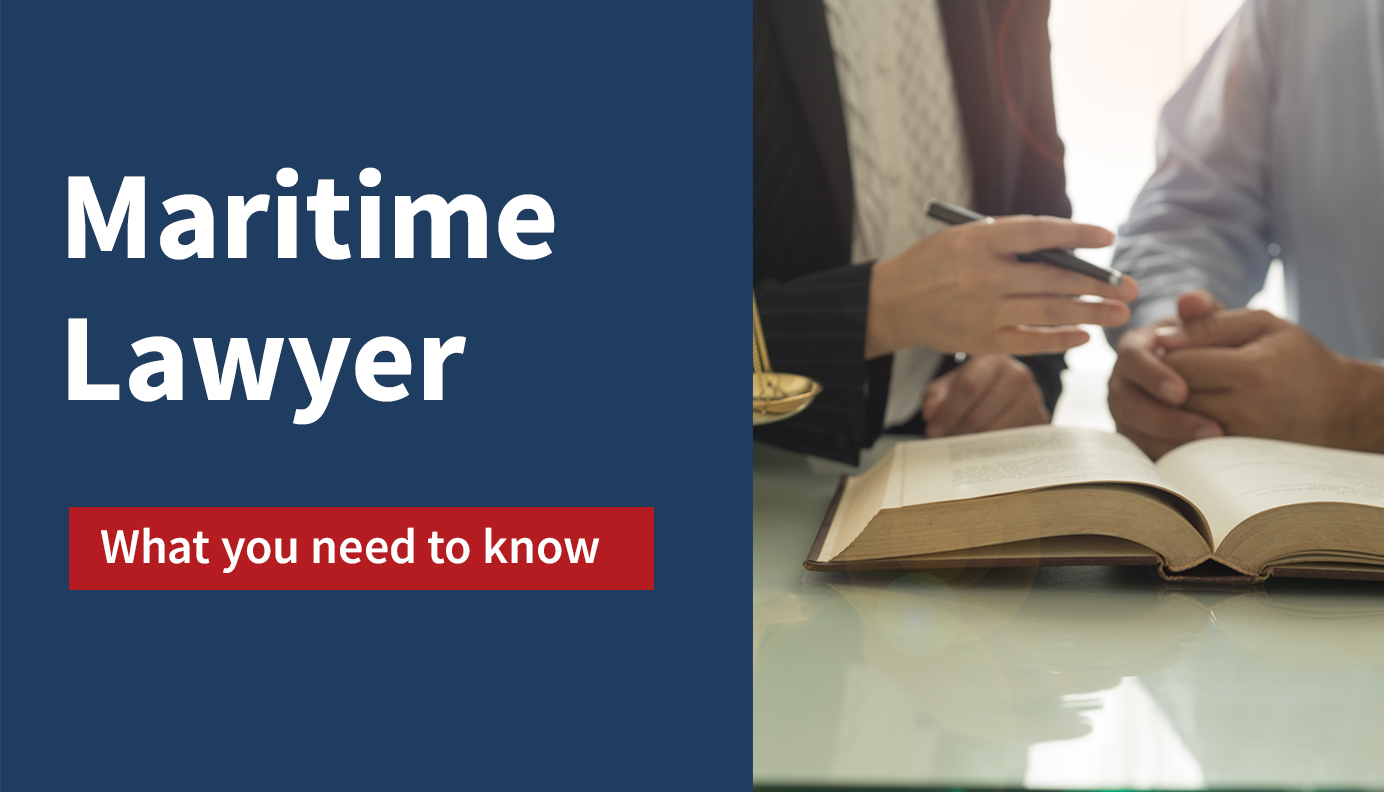Navigating the complex legal landscape of maritime injury claims often requires the expertise of a specialized attorney well-versed in admiralty and maritime law. Maritime injury attorneys play a crucial role in representing individuals who have suffered injuries or harm while working on or around waterways, oceans, or seas. These legal professionals possess a deep understanding of the unique challenges, regulations, and jurisdictional complexities involved in maritime injury cases.
Understanding Maritime Injury Law
Maritime law, also known as admiralty law, encompasses a distinct set of legal principles and rules that govern activities and disputes that occur on navigable waters. It covers a broad spectrum of issues, including injuries sustained by seamen, dockworkers, passengers on vessels, offshore workers, and individuals involved in recreational boating accidents.
The legal framework governing maritime injury claims is influenced by various statutes, international treaties, common law principles, and specialized regulations, such as the Jones Act, Longshore and Harbor Workers’ Compensation Act (LHWCA), and general maritime law.
Role of a Maritime Injury Attorney
Maritime injury attorneys specialize in representing individuals who have suffered injuries or losses in maritime-related incidents. Their role encompasses several key responsibilities:
- Legal Counsel and Representation: A maritime injury attorney provides legal advice, guidance, and representation to individuals seeking compensation for injuries sustained while working or traveling on waterways. They assist clients in understanding their rights, evaluating the merits of their claims, and navigating the complex legal procedures.
- Investigation and Case Preparation: Attorneys in this field conduct thorough investigations into the circumstances surrounding the injury, gathering evidence, witness statements, medical records, and other pertinent information necessary to build a strong case.
- Determining Liability: Identifying the responsible parties for the injury is crucial. Maritime injury attorneys analyze the circumstances to ascertain liability, whether it involves the shipowner, employer, manufacturer, or other entities associated with the maritime operation.
- Filing Claims and Negotiation: These attorneys prepare and file legal claims on behalf of their clients, negotiating with insurance companies, employers, or other parties to achieve fair settlements. If negotiations fail, they are prepared to take the case to trial.
- Litigation and Court Representation: In cases where a settlement cannot be reached, maritime injury attorneys represent their clients in court proceedings, presenting arguments, advocating for their clients’ rights, and pursuing compensation through litigation.
Types of Maritime Injury Cases
Maritime injury attorneys handle a wide range of cases, including:
- Jones Act Claims: The Jones Act provides protections and remedies for seamen injured while working aboard vessels. Maritime attorneys assist eligible seamen in seeking compensation for injuries caused by employer negligence.
- Longshore and Harbor Workers’ Compensation Act (LHWCA): This act provides benefits to maritime workers who are not covered by the Jones Act, such as dockworkers, ship repairers, and harbor construction workers, for injuries sustained on navigable waters.
- Offshore Accidents: Attorneys represent workers injured in offshore accidents on oil rigs, platforms, or other offshore structures, often involving complex legal issues due to the nature of the work and the multiple parties involved.
- Recreational Boating Accidents: They handle cases involving injuries sustained by passengers, operators, or bystanders in accidents occurring during recreational boating activities.
Qualities of a Skilled Maritime Injury Attorney
A proficient maritime injury attorney possesses several key qualities essential for handling these complex cases effectively:
- Specialized Knowledge: In-depth understanding of maritime laws, regulations, and the specific nuances of admiralty law is fundamental.
- Experience and Track Record: Experience in handling a variety of maritime injury cases and a successful track record of securing favorable outcomes for clients.
- Investigative Skills: Proficiency in conducting thorough investigations to gather evidence and build a compelling case.
- Negotiation and Litigation Skills: Strong negotiation skills for settlements and the ability to litigate effectively in court if needed.
- Compassion and Client-Centered Approach: Compassion and empathy towards clients while remaining focused on achieving the best possible outcome for them.
Importance of Hiring a Maritime Injury Attorney
Seeking legal representation from a maritime injury attorney is crucial for several reasons:
- Specialized Expertise: Maritime injury law is highly specialized and differs significantly from other areas of personal injury law. An attorney experienced in this field understands the intricacies and complexities involved.
- Protection of Rights: These attorneys work to protect the rights of injured maritime workers, ensuring they receive fair compensation for their injuries, lost wages, medical expenses, and other damages.
- Navigating Complexities: The laws governing maritime injuries involve complex jurisdictional issues, multiple potentially liable parties, and specific procedural requirements. A knowledgeable attorney can navigate these complexities efficiently.
- Maximizing Compensation: Skilled attorneys strive to maximize the compensation their clients receive, leveraging their knowledge and negotiation skills to achieve the best possible outcomes.
- Peace of Mind: Having legal representation allows individuals to focus on recovery while their attorney handles the legal aspects, providing peace of mind during a challenging time.
Conclusion
Maritime injury attorneys serve a crucial role in advocating for individuals who have suffered injuries or losses while working or traveling on waterways. With their specialized knowledge, experience, and dedication, these attorneys play a vital role in navigating the complexities of maritime law, protecting the rights of their clients, and seeking just compensation for their injuries and damages. If you’ve been injured in a maritime incident, seeking the counsel of a reputable and experienced maritime injury attorney is essential for understanding your rights and pursuing the compensation you deserve.

